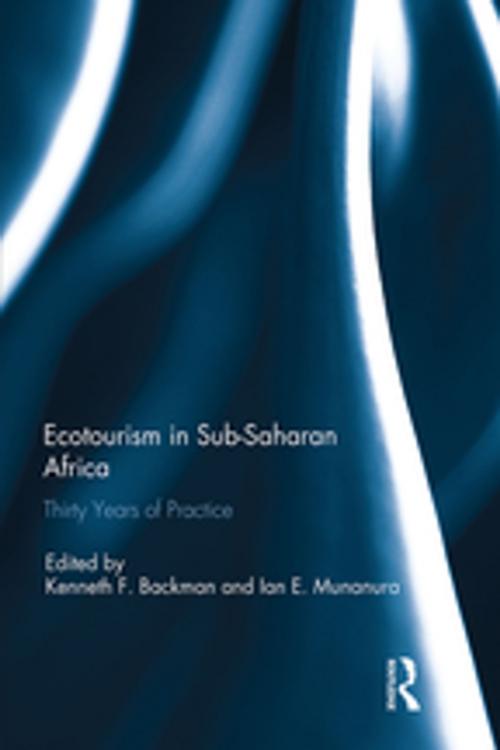Ecotourism in Sub-Saharan Africa
Thirty Years of Practice
Business & Finance, Industries & Professions, Hospitality, Tourism & Travel, Nonfiction, Travel| Author: | ISBN: | 9781351793315 | |
| Publisher: | Taylor and Francis | Publication: | July 14, 2017 |
| Imprint: | Routledge | Language: | English |
| Author: | |
| ISBN: | 9781351793315 |
| Publisher: | Taylor and Francis |
| Publication: | July 14, 2017 |
| Imprint: | Routledge |
| Language: | English |
Since its first mention in the academic literature, ecotourism has been endorsed by NGOs and governments as the most environmentally sound and locally beneficial method of tourist development. Over the last thirty years sub-Saharan Africa has adopted ecotourism as the primary focus for tourism development; research into this has demonstrated mixed results. In this publication, we seek to explore the actual outcomes for African countries that have developed their tourism policy around the principals and values of ecotourism. The sheer scope and magnitude of the task means that a complete evaluation of ecotourism in Africa is impossible. Instead, included here are spot assessments of various aspects of ecotourism related to conservation, policy development, environment, governance, community and indigenous peoples in southern Africa. The studies cover a wide array of countries, including Botswana, Kenya, Tanzania, Uganda, Ghana, Zimbabwe, and South Africa. Though this is only the beginning of a needed long term evaluation of the positives and negatives of ecotourism, it provides a starting point from which to move forward. This book was originally published as a special issue of the Journal of Ecotourism.
Since its first mention in the academic literature, ecotourism has been endorsed by NGOs and governments as the most environmentally sound and locally beneficial method of tourist development. Over the last thirty years sub-Saharan Africa has adopted ecotourism as the primary focus for tourism development; research into this has demonstrated mixed results. In this publication, we seek to explore the actual outcomes for African countries that have developed their tourism policy around the principals and values of ecotourism. The sheer scope and magnitude of the task means that a complete evaluation of ecotourism in Africa is impossible. Instead, included here are spot assessments of various aspects of ecotourism related to conservation, policy development, environment, governance, community and indigenous peoples in southern Africa. The studies cover a wide array of countries, including Botswana, Kenya, Tanzania, Uganda, Ghana, Zimbabwe, and South Africa. Though this is only the beginning of a needed long term evaluation of the positives and negatives of ecotourism, it provides a starting point from which to move forward. This book was originally published as a special issue of the Journal of Ecotourism.















